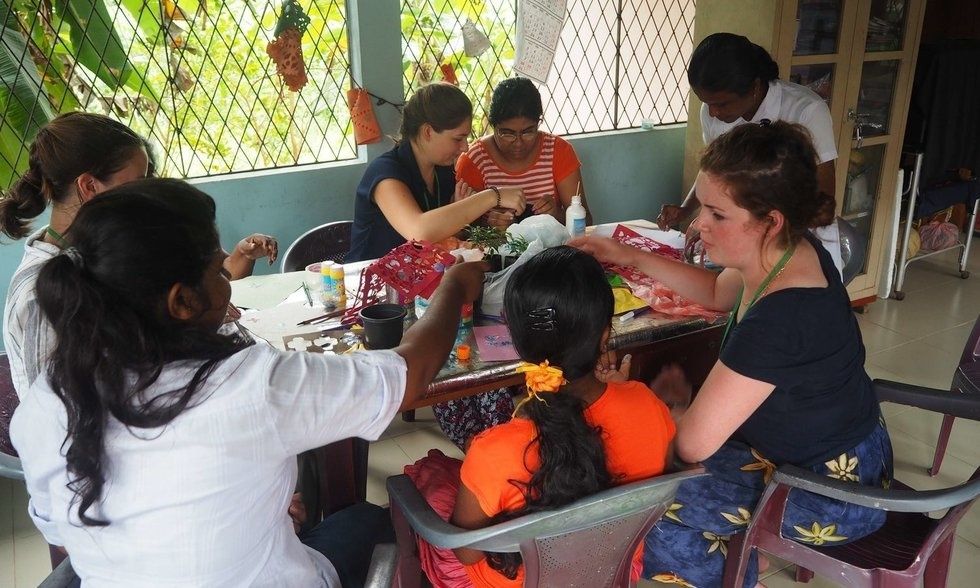
What to Ask Yourself Before You Go on a Service Trip


Doing good while also seeing the world may sound like an ideal way to spend your vacation time or year off. In recent years, this phenomenon—known as “voluntourism“—has become a multibillion-dollar industry. From building houses in Nicaragua to volunteering at a daycare in Bali, these programs offer tantalizing opportunities for the do-gooder with a bit of wanderlust.
However, it’s important to think carefully about why you want to go on these service trips and what you want to accomplish with them. After all, many service trips can do more harm than good, playing into old “white savior” tropes or damaging the infrastructure of already vulnerable places. Here are 11 things to consider before you book that flight across the world.
1. What are your motives for going?
Before embarking on a service trip, you should do a little soul-searching and ask yourself why you want to participate in this kind of work. It’s admirable to want to help others, but do you really want to help, or do you just want to travel while also feeling good about yourself?
If you realize that what you really want is luxury travel, not to get your hands dirty and actively help a cause, then it’s best to reconsider going on these trips. Similarly, if what you’re looking for is intrepid adventure and life-changing drama you can brag about to people at home, you may end up being unhelpful or even a burden to the organization and people you’re trying to help.
Remember, other people’s suffering is not an opportunity for you to embark on your journey of healing or self-actualization. It’s especially not an opportunity for you to post cute pictures with groups of barefoot little kids.
2. Are you expecting a vacation?
Just as you wouldn’t volunteer with a surgeon if you don’t like blood, don’t go on a service trip if you aren’t cool with getting your hands dirty, working hard, and possibly seeing disturbing things. It’s not a service organization’s job to make sure you have a perfectly safe, smooth time while traveling: It’s their job to help people who need it. If you’re going to freak out about a spider in the bathroom, if you can’t stand some inconveniences and bureaucratic troubles, or if you’ll have a breakdown the first time you experience indigestion, you might want to pick a trip to a cosmopolitan area or wait until you develop a thicker skin. Remember, service travel is not supposed to be all about you and your experience.
This also goes for travel in general: There are always mishaps, missed buses, and dirty hostels, and if you’re expecting perfection then you’ll probably wind up missing out on the journey.
3. Do you understand that you’re in part going to serve yourself?
Even if you’re sure that you genuinely want to help people, it’s important to realize that if you’re embarking on a trip that combines travel and service, you’re almost certainly going because in some way, you think it’s serving you. Admitting this will help you check your ego at the door, as you’ll know that you have to make the choice to be humble and flexible and to put others above yourself.
With this in mind, it’s okay to realize that part of the reason you’re going is a little selfish, and that shouldn’t stop you from going. Travel can certainly be a process of cultural exchange and a study in deepening your appreciation for the earth, and volunteering can be very personally gratifying. Helping others does feel good, and it can be eye-opening and life-changing. It’s also okay to go to a place in order to appreciate its beauty in addition to working to help its inhabitants; and it’s okay to pursue things that widen your perspective and deepen your understanding of the world.
However, these things should never replace your commitment to helping, and no matter what, just make sure you won’t be doing more harm than good.
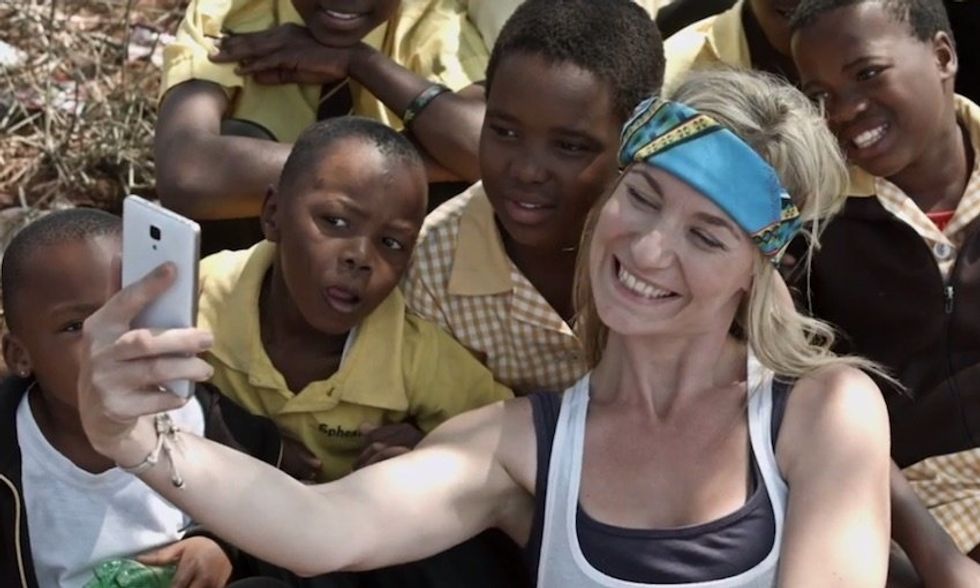
4. Do you have tangible skills to offer?
If you decide that you really do want to embark on a service trip, it’s important to find one where you can genuinely be useful. You should always look for programs that match up with your individual skill set.
Many aid organizations are seeking doctors, administrators, and people who speak a variety of languages, and most will list the skills they’re looking for on their websites. More often than not, unskilled volunteers are more of a burden then a help.
Also, make sure that you don’t volunteer for positions that you are unqualified for. Service trips are not unpaid internships where the goal is learning, so don’t apply for an NGO’s social media manager position unless you actually have experience with social media. Of course, sometimes aid organizations are stretched so thin that you might be useful even if you have no experience in the field; but it’s important to be explicit about this when you reach out or apply for positions. It’s better to be honest and say you don’t have much experience but are happy to help than to stretch the truth like you might in a job interview, because that gives the organization the opportunity to either pick a better candidate or let you know they do need all the help they can get.
When picking a service trip, examine your skill set and choose accordingly. For example, if you have legal experience or are bilingual, migration organizations across the US are always looking for attorneys and translators. If you have experience with outdoor work, then a rebuilding initiative might be good for you—but if you’re just going to spend half the day in the shade, then you may want to reconsider. Remember, unless you’re paying to be there, these service organizations are sacrificing their valuable money for you; and regardless, they’re sacrificing their time and energy to host and train you, and you’re occupying space in someone else’s home.
If you realize that your skill set doesn’t match up with an organization’s goals, then it’s usually better to just donate or otherwise support the cause from home.
5. Are there any opportunities closer to home?
Before you fly halfway across the world and burn gallons of carbon dioxide to spend three days picking up trash on an island, you may want to check for opportunities closer to home.
Many NGOs and volunteers end up doing more harm than good because they don’t work closely with the cultures they’re in, and instead attempt to impose their own cultural beliefs on other countries, thus rehashing the old “white savior” complex that led to the colonization (and subsequent devastation) of so many places.
For example, many NGOs and missions have run “brothel raids,” breaking apart sex work institutions in third world countries—but this act often costs workers their jobs, leaving them unable to feed their families and sometimes forcing them to participate in even more illicit acts. This is why, in terms of voluntourism, it’s sometimes better to stick to what you know instead of bumbling around with no understanding in an unfamiliar place.
If you’re determined to support a cause in another part of the world, sometimes fundraising and political activism can be the best way to go. Instead of running down to the U.S.-Mexico border to loiter in a car by a chain-link fence for a few days, heading to Washington to lobby or just calling your representatives and making your voice heard can make more of an impact.
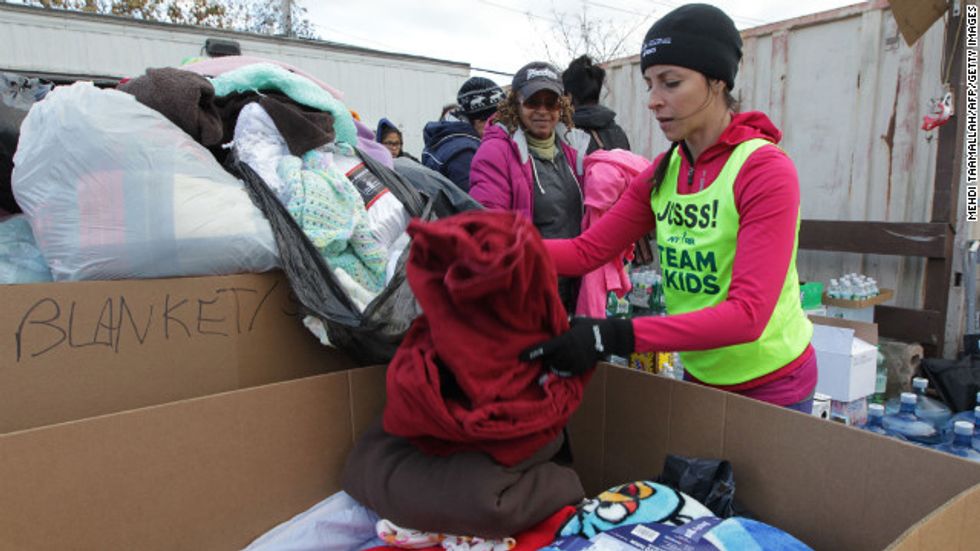
6. Are you going to respect the customs of the place you’re going?
This should go without saying, but you need to change your behavior to accommodate the culture where you’re going, not the other way around. If you’re asked to cover your head, don’t embark on a rant about why head-coverings aren’t okay. If someone came to volunteer in your town not wearing clothes, would you be comfortable with them walking around naked all the time?
Always follow the golden rule—do unto others what you would have done to you. Imagine if you were in a refugee camp because your homeland was devastated by a natural disaster, and then imagine how you would feel if a wealthy volunteer suddenly flew in. Maybe you’d be grateful for the support, but you wouldn’t want them to snap photos of you without your permission.
As a volunteer, you need to listen to others more than you speak, interact with people, and make them feel supported. Hear their stories and prioritize their voices and wishes above your own. Don’t offer pity, because too often volunteers infantilize the operations they’re trying to help: offer your solidarity and support, and just treat everyone like a human being.
{% if 4406306 in post.sections %} {% if post.layout_name==’GeistM total blank’ %} {% if post.layout_name==’GeistM Foreign’ %} {% if post.layout_name==’GeistM no top ad all devices’ %} {% else %} {% else %}
{% endif %} {% endif %} {% endif %} {% endif %}This is why it’s a huge plus if you speak at least some of the native language of the place you’re going. Especially if you’re working directly with people, you should be friendly, relaxed, conversational, and not bogged down by your own emotional baggage or inability to take care of yourself. You can process your emotions on your own, but they should not be a priority when you’re actively working with vulnerable populations.
It’s also important to make sure that the people you’re working with actively want help. Have the people put out requests for aid, and is the organization working directly with the community—or are they hand-in-hand with a corrupt government or trying to profit by funneling rich Americans into an impoverished area?
7. Are you being mindful of the environment?
Unfortunately, flying has a hugely negative impact on the environment. To mitigate this, you can choose to pay a voluntary carbon fee to offset your emissions, or find alternative methods of travel. Once you arrive, try to take public transportation as much as you can, and leave as little behind as possible. Sometimes, tourists can destroy the natural landscape where they’re staying without even meaning to, so it’s beneficial to find an organization that’s conscious of its ecological impact.
Even if you’re just going on a vacation, it’s not a bad idea to spend a little time cleaning up the land you’re staying on. For more information on eco-friendly travel, check out ecotourism.org. You can also choose to participate in an environment-focused volunteer trip. In general, be mindful about what organizations and businesses you choose to support, and buy locally as much as possible.
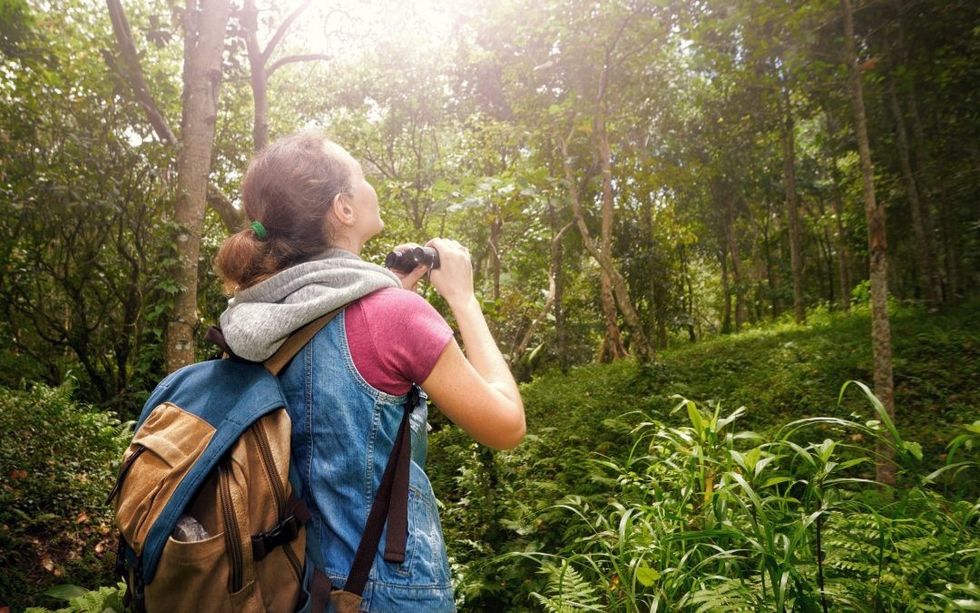
8. Can you stay for an extended period of time?
If you’re committed to traveling far away, using your skills, and working with the local community, then it’s best if you can carve out some time to stay for a long period. It always takes a few days to get settled in and to get over jet lag, so weeklong vacations really don’t allow enough time for you to have any significant impact. If you can stay for months or a year, you can really begin to understand how the organization you’re working with runs, and you’ll develop knowledge of local customs and circumstances that you can use to benefit the work you’re doing. You’ll also be able to connect with the local community, making it clear that you actually care and are there to help.
At the very least, you should stay for a couple of weeks; if not, you may want to reconsider whether you’ll be more of a help or a hindrance to the organization and the people you’re working with. After all, they may have to pick you up from the airport and drop you off, or at least they’ll have to spend time helping you get adjusted, which takes away time they could’ve used to do the work.
9. Is the initiative you’ll be working with going to have a long-lasting impact?
When picking a program to volunteer with, make sure that the organization is working to involve the local community and is building a foundation for long-term improvement. Another option is to dedicate your skills to a local organization or business that’s already tied to the community. You can learn a lot by talking to people and asking how you can best be of assistance.
Most humanitarian crises are caused by deep-rooted structural issues, so putting in a few days of manual work is like putting a band-aid over an open wound. You should work to understand the economic, political, and sociocultural factors that created the circumstances you’ll be witnessing, and be critical of any organization that promises superficial-seeming aid. Be wary also of work that, the moment you leave, will be undone by the same factors that created the problem in the first place.
If you have the ability, try to ensure that your (positive) impact will remain intact after you leave. For example, if you start a music lessons program for a shelter, find other teachers who can continue after you’re gone, or work with programs that create jobs for locals.
10. Are you prepared for what you might experience?
If you’re going to a dangerous place, make sure you’ll be safe and understand what you’re getting yourself into. In addition, make sure you’ve prepared yourself for any violence or suffering you might see. Don’t glamorize others’ pain or search for “authentic,” dangerous situations. Regardless of where you go, make sure you take care of yourself and balance work with rest and self-care.
But also prepare yourself for witnessing incredible resilience and forming deep, profound bonds with others. Service trips can be intense experiences in many ways, so be open to anything and prepared for everything you can think of.
11. Are you participating in orphanage tourism or other damaging initiatives?
In general, volunteering with kids is not always the best way to go. Sure, you might’ve read some stories about other travel-volunteers having adorable bonding experiences with cute little children in faraway places, but remember, it can be difficult and upsetting for children when people keep coming, giving them little gifts, and then leaving. This can be especially traumatic for orphans, who already have lost so much; if you go to spend a day with one and then they never hear from you again, this will just cause more pain.
There are a lot of other potential issues with voluntourism. For example, the presence of volunteers can put too much weight on infrastructure or already scarce resources. Voluntourism can also reinforce paternalism, pressuring locals to feel grateful and indebted while making them feel victimized or infantilized.
In 2012, the novelist Teju Cole developed the term “white savior industrial complex” to describe the kind of voluntourism that makes volunteers feel good about themselves by simplifying problems that are far more complicated than they seem. “How, for example, could a well-meaning American ‘help’ a place like Uganda today?” Cole writes. “It begins, I believe, with some humility with regard to the people in those places. It begins with some respect for the agency of the people of Uganda in their own lives. A great deal of work had been done and continues to be done, by Ugandans to improve their own country, and ignorant comments (I’ve seen many) about how ‘we have to save them because they can’t save themselves’ can’t change that fact.” He also encourages big-hearted Americans to look closer to home, stating, “Let us begin our activism right here: with the money-driven villainy at the heart of American foreign policy.”
12. Have you done your research?
Research is the number one most important thing that you need to do before you embark on a service travel trip. You need to learn as much as you can about the organization you’re going to be working with. Do they work with the communities instead of dropping in and attempting to redesign them on a foreign power’s terms? Do they treat people with humanity? What were other volunteers’ experiences? What is their leadership like?
You should also do your research about the place you’re going. Most social issues cannot be divided into a good-bad binary, and many conflicts have deep, tangled roots. If you’re going to a politically charged area, you need to be aware of the circumstances that resulted in the current environment. You should also research the culture, learn at least some of the language, and research where you’ll be staying so you can bring everything you’ll need.
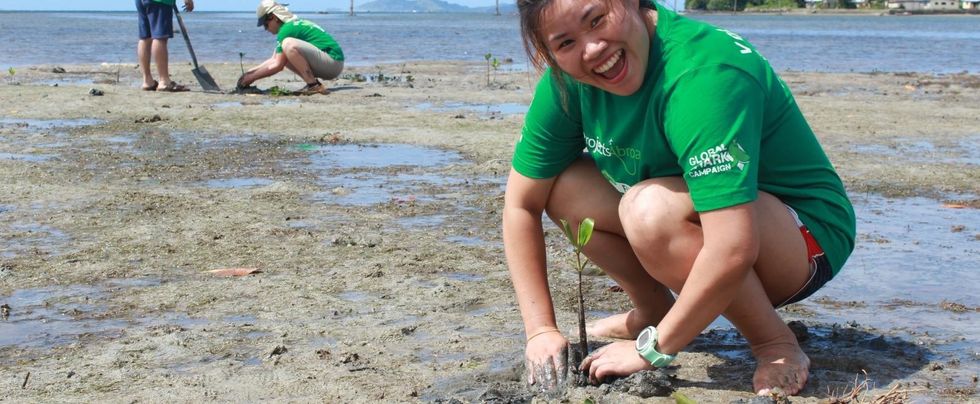
If after reading all this, you still feel like a service trip is the right choice for you, then absolutely go for it. In a world where so many people are hurting, solidarity is vital, and the impulse to help others is always an admirable characteristic. When volunteers work alongside affected populations to consciously rebuild and support a better world, mutually beneficial bonds can form and lasting change can occur.
For more information on the problems with voluntourism, check out the book When Helping Hurts. Other thoughtful voluntourism initiatives include The Wandering Scholar, Atlantic Impact, and World Learning.
- before going on a service trip
- ecotourism
- gap year
- gap year advice
- mission trips
- orphanage tourism
- service trip
- teju cole
- twitter.com
- vacation
- volunteer
- volunteer abroad
- volunteer overseas
- volunteering
- voluntourism
- voluntourism problems
- what to know before you go on a service trip
- white savior
- white savior industrial complex
